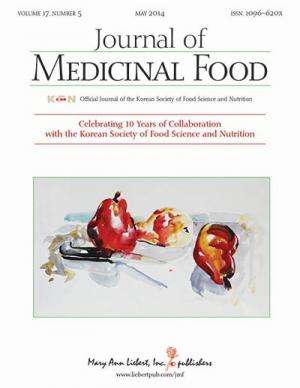©2014, Mary Ann Liebert, Inc., publishers
The commonly used food additive monosodium glutamate (MSG) has been linked to obesity and disorders associated with the metabolic syndrome including progressive liver disease. A new study that identifies MSG as a critical factor in the initiation of obesity and shows that a restrictive diet cannot counteract this effect but can slow the progression of related liver disease is published in Journal of Medicinal Food.
Makoto Fujimoto and a team of international researchers from Japan, the U.S., and Italy monitored the weight gain and development of nonalcoholic fatty liver disease and its progression to nonalcoholic steatohepatitis in MSG-treated mice fed either a calorie-restricted or regular diet. They report their findings in the article "A Dietary Restriction Influences the Progression But Not the Initiation of MSG-Induced Nonalcoholic Steatohepatitis".
"Although MSG has been deemed a safe food additive, its dosage, interaction with other drugs, effects on vulnerable populations, and effects on chronic inflammatory diseases and neurological diseases are unknown," says Co-Editor-in-Chief Sampath Parthasarathy, MBA, PhD, Florida Hospital Chair in Cardiovascular Sciences, University of Central Florida, Orlando, in the Editorial "How Safe is Monosodium Glutamate? Exploring the Link to Obesity, Metabolic Disorders, and Inflammatory Disease" . The findings by Fujimoto et al. "may have far reaching implications, as childhood obesity is a major problem across the globe."
More information: The paper is available on the Journal of Medicinal Food website
Provided by Mary Ann Liebert, Inc


















